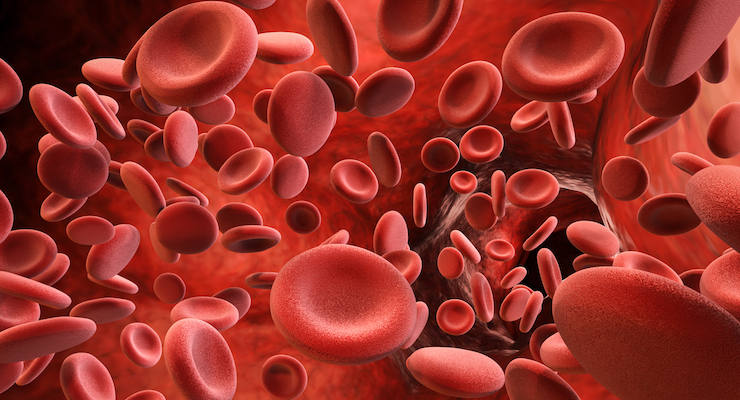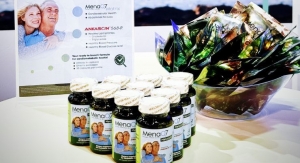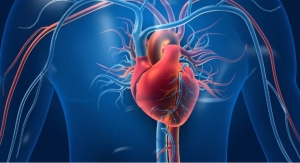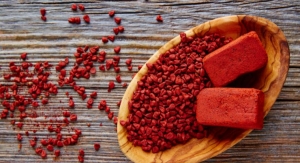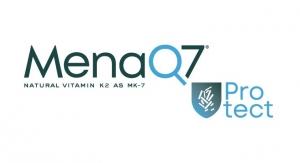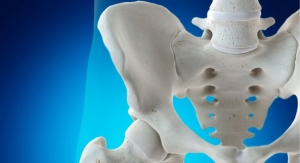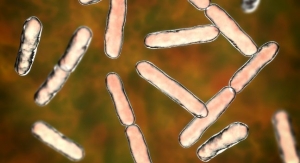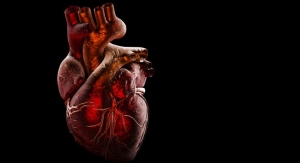10.09.20
A preliminary review published in Cambridge University’s British Journal of Nutrition theorizes that vitamin K metabolism may serve as a missing link between lung damage and thromboembolism (blood clotting in the lungs), two of the most serious outcomes observed in COVID-19 patients. The authors of the article believe that previous clinical research warrants investigations into whether vitamin K deficiency in blood concentrations outside of the liver may increase the risk of morbidity in COVID-19 outcomes.
“Considering that vitamin K is important for regulating lung health and blood clotting, vitamin K deficiency during COVID-19 may make both of these problems worse,” lead authors Dr. Rob Janssen and Jona Walk, researchers at the Canisius Wilhelmina Hospital in the Netherlands, said.
Vitamin K has been shown to play a role in both pro- and anticlotting factors in the liver by activating synthesized protein S. While vitamin K1 is stored mostly in the liver, vitamin K2, which is present in the blood, is believed to exhibit both anti-coagulation effects, and inhibit the calcification of soft tissue and the degradation of elastic fibers, by inhibiting Matrix Gla protein.
In COVID-19 patients, thromboembolism (obstruction of a blood vessel by a blood clot that has become dislodged) and generalized microvascular thrombosis are prevalent, and other cardiovascular conditions, which are also associated with both thrombosis and vitamin K deficiency, are also associated with higher morbidity in COVID-19 cases.
“The mechanisms leading from pulmonary infection to systemic coagulopathy in Covid-19 have not yet been entirely elucidated,” the authors wrote. “It has previously been shown that severe vitamin K deficiency in critically ill patients can be misdiagnosed as disseminated intravascular coagulation (DIC). Given the importance of vitamin K-dependent proteins in coagulation as well as elastic fiber metabolism, we recently hypothesized that vitamin K is implicated in Covid-19 pathogenesis and could represent the missing link between pulmonary damage and thrombogenicity.”
Vitamin K1 is preferentially transported to the liver, and the authors of the article theorize that extrahepatic (outside of the liver) proteins play a decisive role during COVID-19 infection. Insufficient activation of the proteins that vitamin K target in the blood vessel walls and in the lungs may lead to an increased risk for thrombosis and lung damage, respectively, the authors of the study wrote.
“The triage theory posits that during times of scarcity, micronutrients are reserved for use in processes that form the greatest threat to short-term survival in not properly executed,” the authors wrote. “This implies that in case of vitamin K insufficiency, the vitamin is preferentially transported to the liver for the activation of the abovementioned procoagulant factors at the expense of extrahepatic vitamin K-dependent proteins such as MGP.”
The authors said that because vitamin K2 has more potential to be distributed outside of the liver than K1, and has a longer half-life time, it may be more efficient in reducing the coagulating proteins associated with thrombosis and lung damage. Further, the authors of the study described that excessive vascular calcification can occur from excessive consumption of vitamin D, despite its favorable inflammatory-modulating properties, though this could be mitigated by adequate extrahepatic vitamin K.
“There is a need for further experimental evidence to link vitamin K deficiency with the pathology of COVID-19 and determine whether vitamin K2 supplementation has a place in treatment protocols,” the authors concluded. “The potential role of vitamin K2 supplementation to prevent development of severe COVID-19 in subjects who have not yet contracted COVID-19, but are at risk for the infection, is also very relevant to assess.”
Kappa Bioscience, the makers of K2VITAL, supported this study and reported it is entering agreements with several research centers in the U.S. and Europe to support a better understanding around vitamin K2 efficiency’s impact on COVID-19 pathogenesis.
“Considering that vitamin K is important for regulating lung health and blood clotting, vitamin K deficiency during COVID-19 may make both of these problems worse,” lead authors Dr. Rob Janssen and Jona Walk, researchers at the Canisius Wilhelmina Hospital in the Netherlands, said.
Vitamin K has been shown to play a role in both pro- and anticlotting factors in the liver by activating synthesized protein S. While vitamin K1 is stored mostly in the liver, vitamin K2, which is present in the blood, is believed to exhibit both anti-coagulation effects, and inhibit the calcification of soft tissue and the degradation of elastic fibers, by inhibiting Matrix Gla protein.
In COVID-19 patients, thromboembolism (obstruction of a blood vessel by a blood clot that has become dislodged) and generalized microvascular thrombosis are prevalent, and other cardiovascular conditions, which are also associated with both thrombosis and vitamin K deficiency, are also associated with higher morbidity in COVID-19 cases.
“The mechanisms leading from pulmonary infection to systemic coagulopathy in Covid-19 have not yet been entirely elucidated,” the authors wrote. “It has previously been shown that severe vitamin K deficiency in critically ill patients can be misdiagnosed as disseminated intravascular coagulation (DIC). Given the importance of vitamin K-dependent proteins in coagulation as well as elastic fiber metabolism, we recently hypothesized that vitamin K is implicated in Covid-19 pathogenesis and could represent the missing link between pulmonary damage and thrombogenicity.”
Vitamin K1 is preferentially transported to the liver, and the authors of the article theorize that extrahepatic (outside of the liver) proteins play a decisive role during COVID-19 infection. Insufficient activation of the proteins that vitamin K target in the blood vessel walls and in the lungs may lead to an increased risk for thrombosis and lung damage, respectively, the authors of the study wrote.
“The triage theory posits that during times of scarcity, micronutrients are reserved for use in processes that form the greatest threat to short-term survival in not properly executed,” the authors wrote. “This implies that in case of vitamin K insufficiency, the vitamin is preferentially transported to the liver for the activation of the abovementioned procoagulant factors at the expense of extrahepatic vitamin K-dependent proteins such as MGP.”
The authors said that because vitamin K2 has more potential to be distributed outside of the liver than K1, and has a longer half-life time, it may be more efficient in reducing the coagulating proteins associated with thrombosis and lung damage. Further, the authors of the study described that excessive vascular calcification can occur from excessive consumption of vitamin D, despite its favorable inflammatory-modulating properties, though this could be mitigated by adequate extrahepatic vitamin K.
“There is a need for further experimental evidence to link vitamin K deficiency with the pathology of COVID-19 and determine whether vitamin K2 supplementation has a place in treatment protocols,” the authors concluded. “The potential role of vitamin K2 supplementation to prevent development of severe COVID-19 in subjects who have not yet contracted COVID-19, but are at risk for the infection, is also very relevant to assess.”
Kappa Bioscience, the makers of K2VITAL, supported this study and reported it is entering agreements with several research centers in the U.S. and Europe to support a better understanding around vitamin K2 efficiency’s impact on COVID-19 pathogenesis.

